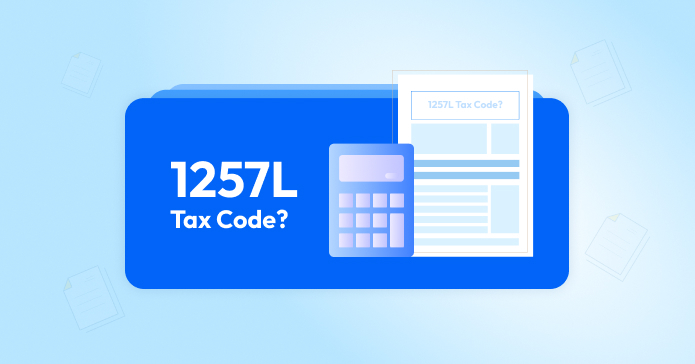If you’ve ever looked at your payslip and wondered what your tax code means, you’re not alone. For many, it’s easy to overlook these details. However, understanding your tax code can help ensure that you’re paying the correct amount of tax and that you’re benefiting from any available tax relief. In this guide, we’ll break down one of the most common tax codes, 1257L, and explain exactly what it means.
Where to Find Your Tax Code
Your tax code is easier to locate than you might think. You can find it on:
-
Your payslip
-
Any letters or emails from HMRC
-
The HMRC app
-
Your personal tax account on the GOV.UK website
-
A tax code notice letter from HMRC (these are sent if your code changes, with an explanation)
How to Ensure You’re on the Correct Tax Code
Ensuring your tax code is correct not only helps you avoid overpaying but also guarantees you’re getting the right benefits. For example, if your Personal Allowance has increased because of uniform upkeep or work-related expenses, your tax code could change to reflect this, such as 1263L.
To check your code, you can refer to GOV.UK or speak to your employer if you think there’s been a mistake. Using HMRC’s tools will also help you confirm the meaning behind your tax code.
What Does the 1257L Tax Code Mean?
The 1257L tax code is broken down into two parts:
- 1257: This indicates you’re entitled to the standard £12,570 personal allowance, meaning you can earn this amount tax-free.
- L: This letter shows that you’re entitled to the full personal allowance without any restrictions or additional circumstances affecting your tax.
You’ll most likely have this tax code if you only have one job or receive a pension. However, it may change if your situation changes. For instance, if your earnings surpass £125,140, you would no longer be eligible for the personal allowance, and your code could change to 0T.
Changes in employment, receiving additional tax relief, or becoming self-employed are other factors that could affect your tax code.
Is 1257L an Emergency Tax Code?
The 1257L tax code can be an emergency tax code, but only if it’s followed by W1, X, or M1. This often happens when your new employer hasn’t received your P45 or if you’ve transitioned from self-employment to employment. It could also occur if you receive company benefits or start receiving the State Pension.
Conclusion
By understanding the details of your tax code, you can be more confident that you’re paying the right amount of tax and not missing out on any available benefits. Always double-check your tax code, especially if your circumstances change, and consult HMRC or your employer if anything seems off. A simple check can save you from unnecessary overpayments.
re looking for an accountant to help you with your queries related to your business accounts, Call at 020 35765107 or send a message to book a free consultation. Learn more about our online accounting services and pricing.
Note: It must be noted that the information provided in all our blogs are solely for the awareness purposes and are designed with the intention to create an ease for the reader to understand the rules and their importance. However, it should never be considered as an ultimate replication of rules. RezEx Accountants (RezEx Ltd) does not own any responsibility for any unpleasant event that may arise due to misinterpretation of a specific part or whole of the information.




